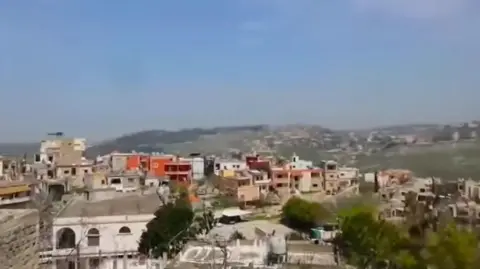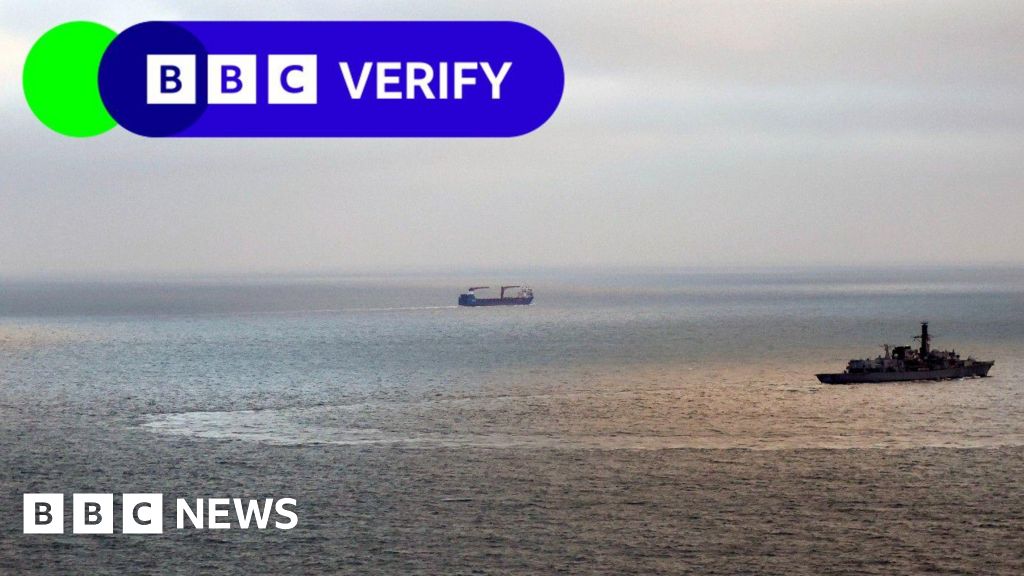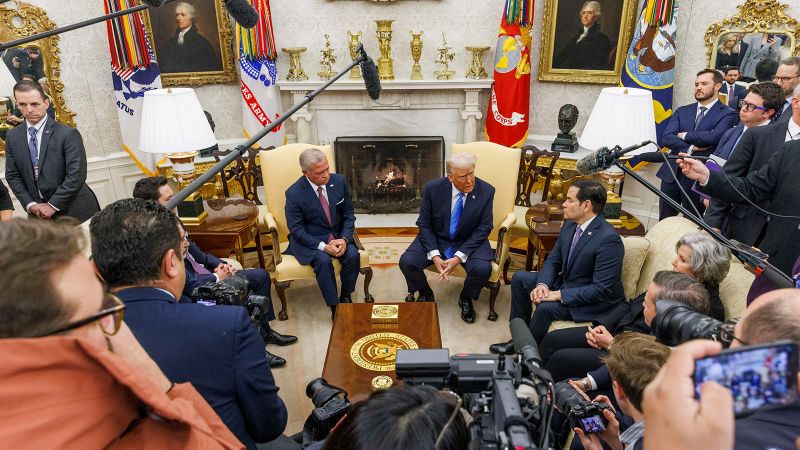Lebanon local official says 19 killed in Israeli strike on family’s home
 Tefffahtacom/Facebook
Tefffahtacom/FacebookAt least 19 people, including six women and five children, were killed in an Israeli strike on a house in southern Lebanon on Tuesday, a local official has said.
Suad Hammoud told the BBC that the dead included former school principal Ahmed Ezzedine and three generations of his family, who all lived in the three-storey building in the village of Teffahta.
The village’s imam, Sheikh Abdo Abo Rayya, was killed while walking near the house at the time of the strike along with two passers-by, she added.
The Israeli military has not yet commented on the incident, but it has repeatedly said it takes measures to mitigate harm to civilians.
It has carried out thousands of air strikes across Lebanon over the past four weeks, targeting what it has said are the armed group Hezbollah’s operatives, infrastructure and weapons.
Ms Hammoud said Wednesday’s strike in Teffahta happened after the funeral for Ahmed Ezzedine’s cousin and brother-in-law, Khodr, who was killed in an Israeli air strike in the neighbouring village of Marwanieh on Monday.
But she said a report by the state-run National News Agency (NNA) that the strike had targeted a wake for mourners to express their condolences was incorrect.
“Only the house’s residents were there. They came back after the funeral. There were no strangers there,” she said.
“People are aware that the circumstances do not allow them offering condolences in person, so there are no wakes in the village anymore.”
Also inside the house with Mr Ezzedine were his wife, sister, daughters, daughter-in-law, sons-in-law and his grandchildren, she said.
Mr Ezzedine lived on the ground floor, while his children and their families lived on the upper floors. But everyone is believed to have been on the ground floor when the house was hit.
A video posted on social media showed shortly afterwards showed a huge plume of smoke rising from a hillside in Teffahta where the house was located.
On Wednesday morning, Lebanese TV broadcast footage of a pile of rubble and twisted metal that once made up the upper floors.
The Lebanese health ministry has not reported how many people were killed in the strike. But Ms Hammoud and Teffahta’s community Facebook account put the death toll at 19.
The Facebook account named the five children as Mohammed Yassin, Ahmed and Malak Ezzedine, and Sara and Mohammed Kinyar, and the six women as Zaineb, Malak, Hadiya, Fadiya and Fatima Ezzedine and Zaina Taleb.
Sheikh Abo Rayya was walking near the house at the time of the strike, according to Ms Hammoud.
“The houses in the village aren’t isolated, they’re very close to one another,” she said, adding that another two men identified by the Facebook account as Rabih Younes and Hussein Saleh were also likely to have been passers-by killed by the explosion.
A relative of Sheikh Abo Rayya told the BBC that strike happened at about 17:10 local time, about 15 minutes after the funeral.
They insisted that the sheikh was not the target, noting that the house had been “obliterated”.
“Sheikh Abdo was just passing by the house. He wasn’t inside the house. He was on his way to the mosque with his companion. They were going to prayers,” they said.
“The imam was going down the hill and the pressure wave blew him away. He didn’t die immediately. He was injured and died at the hospital around five hours later.”
Last week, the UN human rights office received reports that 12 women and two children were among 23 people killed in an Israeli air strike on a four-storey residential building in the northern Lebanese town of Aitou.
It called for an investigation into the attack, expressing concerns with respect to international humanitarian law, including the principles of distinction and proportionality.
The Israeli military said it “struck a target belonging to the Hezbollah terrorist organisation”.
Israel’s launched an air campaign and ground invasion against Hezbollah after almost a year of cross-border fighting sparked by the war in Gaza, saying it wanted to ensure the safe return of tens of thousands of residents of Israeli border areas displaced by rocket attacks.
Hezbollah began firing rockets into northern Israel in support of Palestinians on 8 October 2023, the day after its ally Hamas’s deadly attack on Israel.
More than 2,500 people have been killed in Lebanon since then, including 1,900 in the past five weeks, according to the country’s health ministry. Israeli authorities say 59 people have been killed in northern Israel and the occupied Golan Heights.






